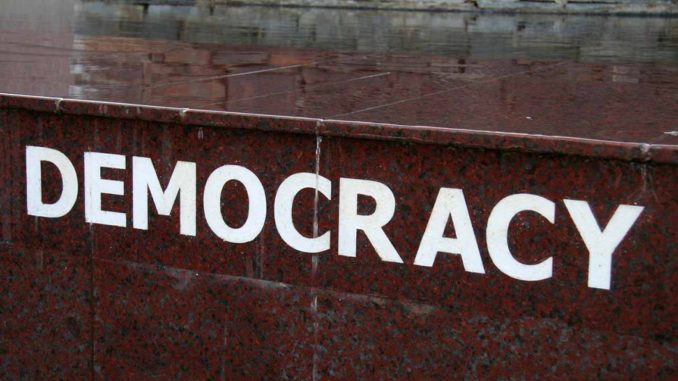
In a democratising social formation, the need to entrench democratic principles in practice cannot be over-emphasised. It becomes more compelling in times of electoral turnover and more so for a society that is anomic, afflicted by identity politics, corruption and low-intensity insurgency. Without denial, our society approximates these symptoms and what we require to transform them are responsible state institutions that are loyal to the population that willed into existence the state as an entity in the beginning.
This comment has become pertinent because in the last couple of months, there have been obvious manifestations of partisanship by state institutions. One, in the conduct of both Ekiti and Osun gubernatorial elections, the deployment of state security forces was perceived not by a few as intimidation of political parties other than the ruling All Progressives Congress (APC) with a consequent constriction of the democratic space.
Two, there have been reports of seizure of light weapons and military camouflages by customs officials in different locations across the country. And three, during the recent commencement of campaigns by the APC, all the service chiefs were present, calling into question their neutrality in the ongoing electoral process. State security players have the state as the locus of their loyalty not temporal wielders of state power such as governing parties. Governments come and go, but the state even though not a permanent entity, mostly endures.
The foregoing and the increasing tough and careless talks by political actors across the broad spectrum of political parties have gained the attention of international community. In particular, the European Union Delegation to Nigeria comprising all its member-states and the United States of America have called on the security forces to eschew actions that would jeopardise free and fair elections next year.
It restated the well-known functional responsibility of the security agencies, namely, the provision of safe and secure environment for the exercise of democratic rights by the citizenry and impartial behavioural disposition underlined by high professionalism. The international community also frowned on the increasing incidents of intimidation and the new phenomenon of open vote buying, which have consequences for free and fair elections and post-election peace and security in the country.
Whereas the country has made some progress in electoral reforms and the civil liberties of the citizens are supposed to have improved, the resurgence of vote buying certainly undermines informed choices by the electorate and diminishes the threshold of freeness and fairness of the electoral process and the overall quality of our democracy.
However, it is shameful that we have to be reminded by the international community on what ought to be internalised and routinised in practice in a democratic dispensation—respect for democratic rights. Unfortunately, we are not there and the world has become a global village so much that occurrences in one part could portend ill for the peace and stability of the entire international community.
Truly, Nigeria trudges on a fragile path and an implosion within will not only threaten the peace and security of the sub-region, it will amount to an unimaginable humanitarian crisis. This is about the most populous nation in Africa. Thus, the warning signals are useful at this time.
Therefore, as Nigeria lurches towards general elections in barely three months, the importance of peace needs to be re-emphasised in one of the most complex federations on earth. The country needs peace and stability for development and nation building. This cannot be realised through authoritarian exertions by institutions of state that are expected to be impartial and protect the interest of the Nigerian people rather than interim public office holders who derive their authority ultimately from the people.
It is important to reiterate that liberal democracy has claims to value. These values include limited government, rule of law, political rights and freedom, common citizenship and equality before the law, social inclusion, accountable government, free and fair elections and popular participation. Since this form of government is enshrined in the 1999 Constitution as amended, all must respect its principles in practice. The security forces and institutions of the state are not outlaws: they are the servants of the people and not merely the government of the day. Thus, they must respect the democratic rights of the people as it is only through open and effective challenges to the policies of government in the form of exercise of their franchise can government become responsible and responsive to them. Equally, it is only in the exercise of their democratic right that the people can vote for candidates of their choice.
Therefore, all stakeholders, young and old should enjoy benefits of history of political dispensations in the country. First and Second Republics came to harm through excesses of some overzealous state actors and abuse of institutions of governance by officers of the law. That is a road we should not take as the world is watching how the most populous black nation on earth would like to celebrate 20 years of unbroken democracy in May 2019.
Certainly, governing authorities and the people of Nigeria have a responsibility to ensure that next year’s elections are peacefully conducted. We do not need the international community to tell us about the safety of democracy in the country. We only need to conquer ourselves – to make democracy safe. And so, in the name of everything that is decent and orderly, democracy should again be celebrated after next year’s elections.
END

Be the first to comment